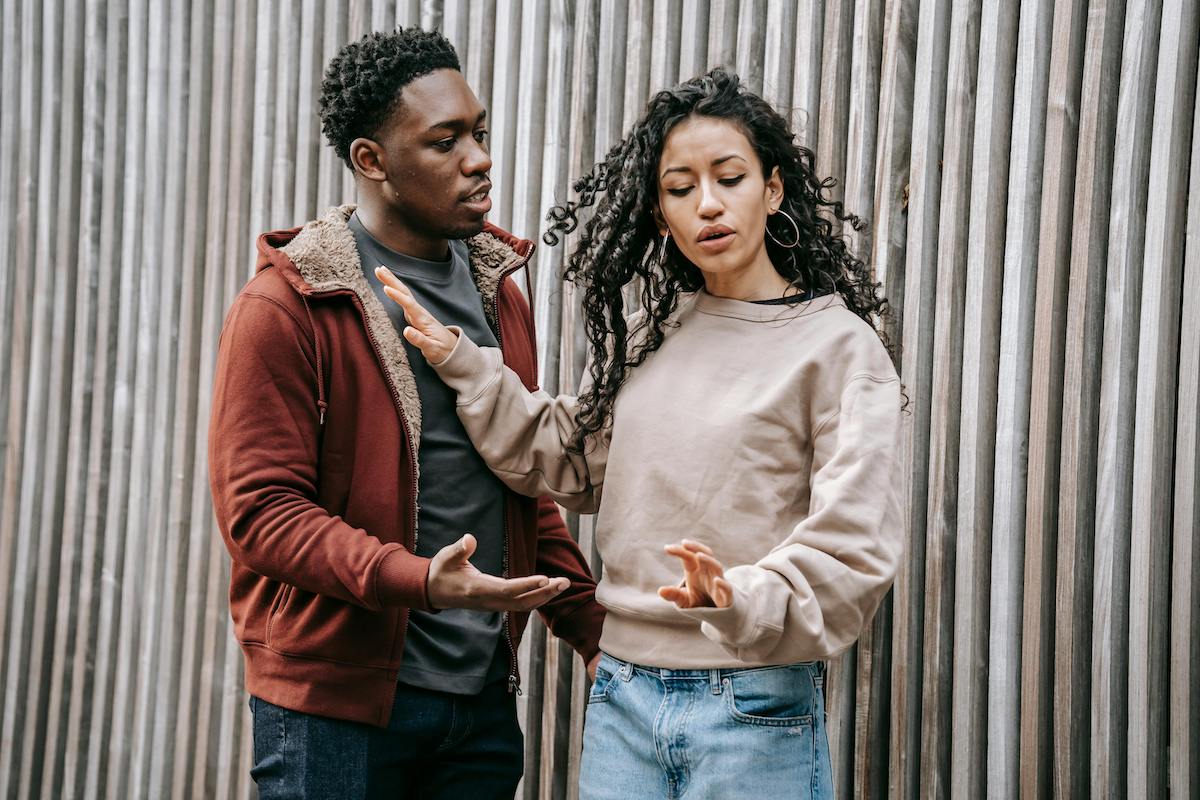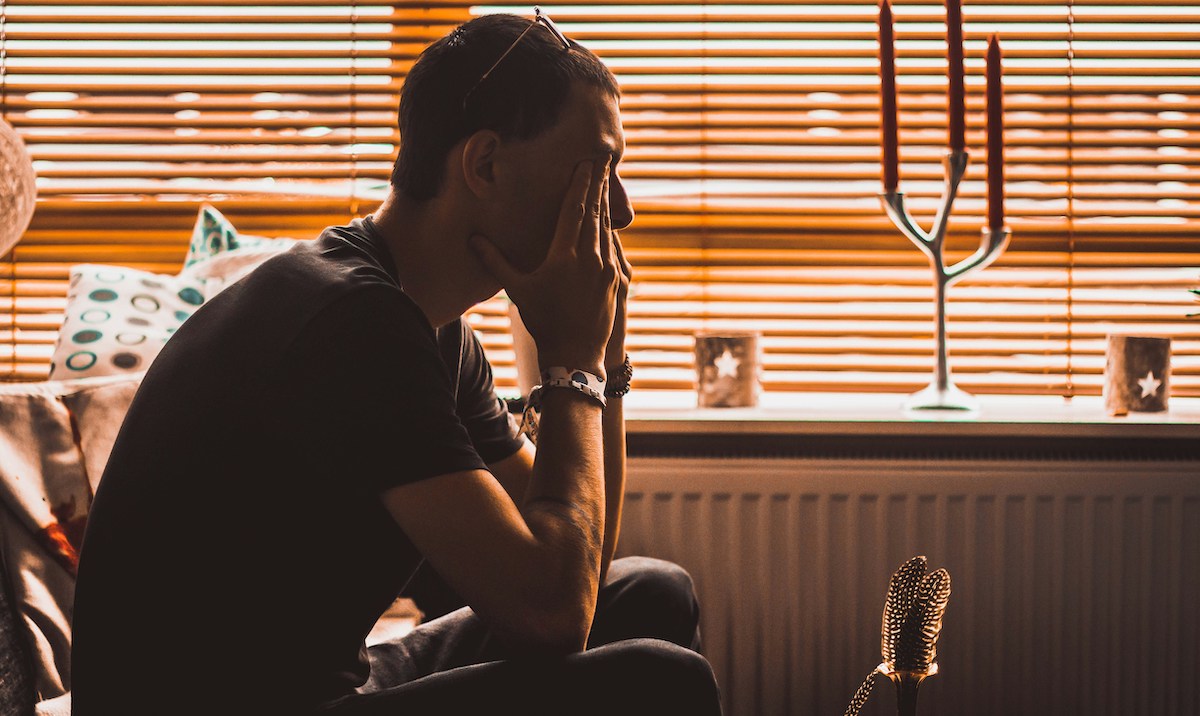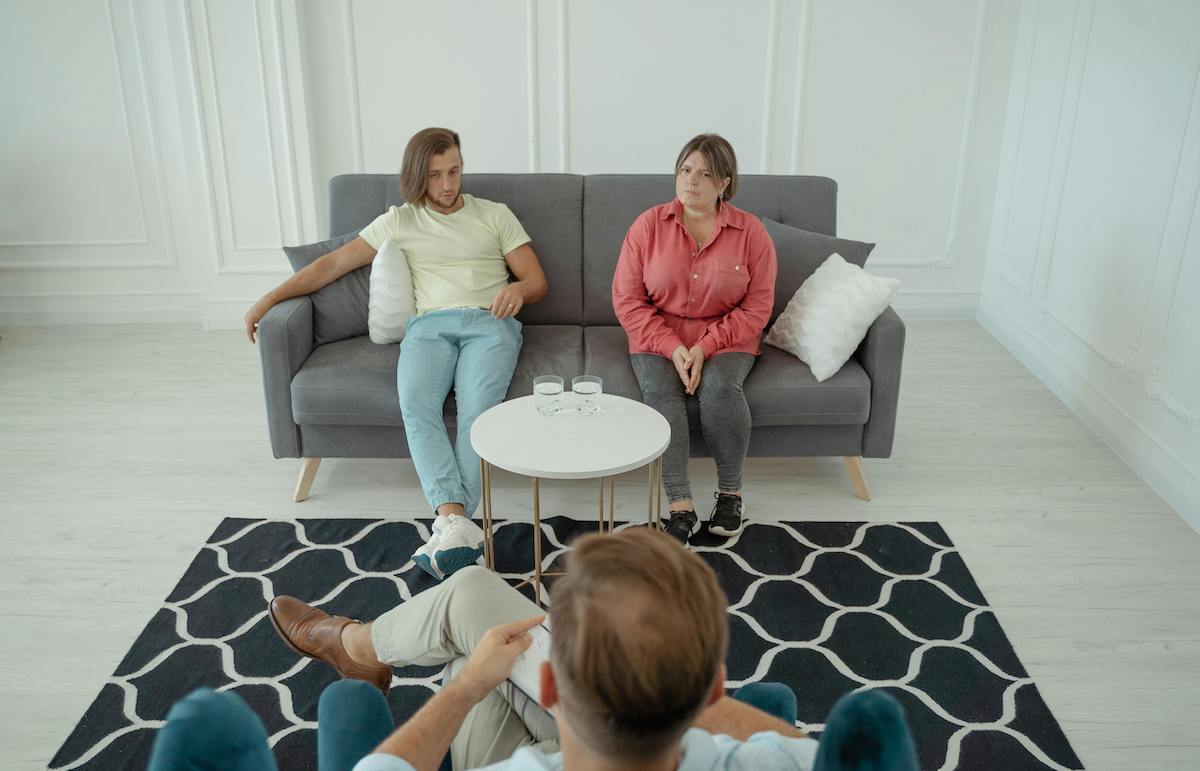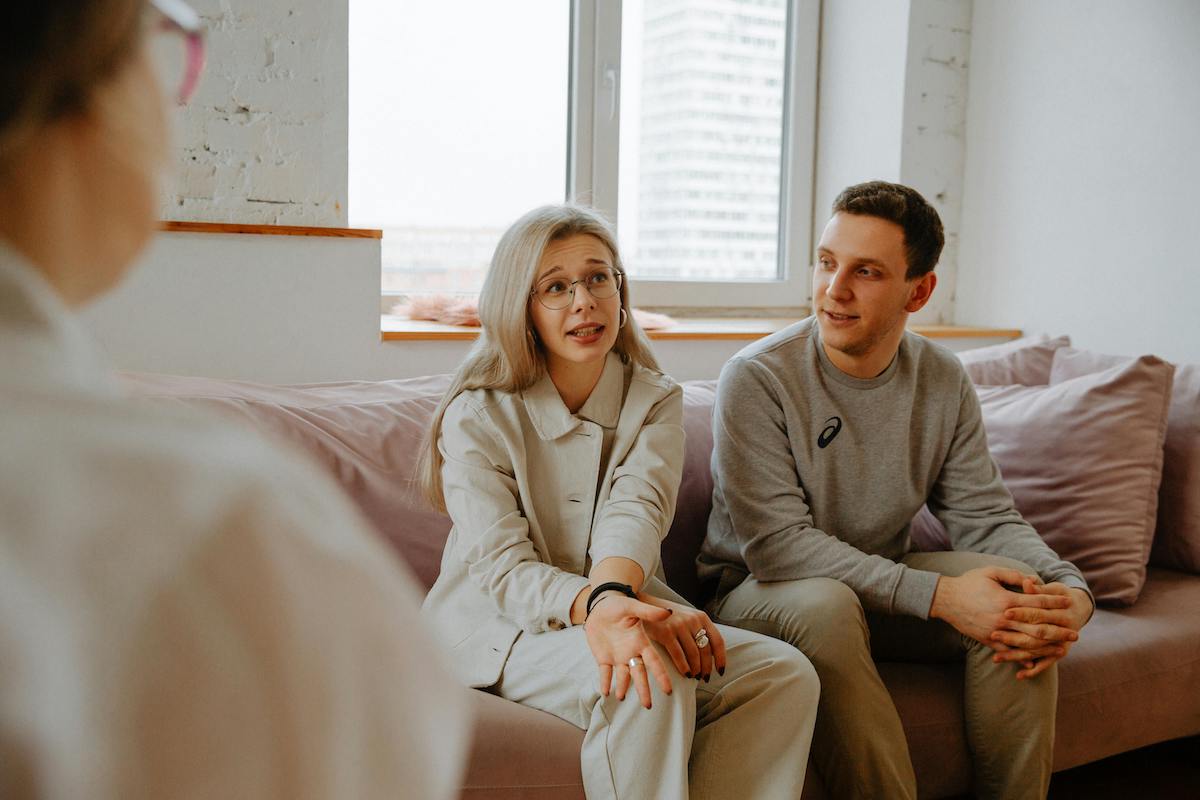How do you know when it’s time to see a couples therapist?
All relationships go through difficult seasons, so couples often wonder if their issues are actually ‘serious enough’ to seek help.
They ask: Are things really that bad? Are we overreacting? Is it too early—or too late—to get help?
The best advice I can give you from working with hundreds of couples: therapy doesn’t need to be a last resort.
In fact, the earlier you come in, the more room you have to grow, repair, and reconnect.
Still, many couples wait years, sometimes even decades, to finally get support. By then, the patterns are even more entrenched, the hurt even deeper, making things even more difficult to unravel.
I’ll walk you through the key signs that couples therapy might help, when it may not be the right move, and how to take that first step, without shame or second-guessing, if you decide to seek counseling.
Signs You Might Need Couples Therapy
The average couple waits 2-3 years between the onset of serious marital problems and entry into couples therapy or individual therapy for relationship problems.

If you’re nodding along to even one of the following sentiments, it might be time to talk to someone.
Frequent Arguments or Growing Resentment
Every couple disagrees. But if your arguments feel constantly about the same things, circular, or increasingly hostile, that’s a sign that something deeper needs attention, especially if the conversations leave one or both of you feeling resentful or unheard.
Couples therapy helps you understand what’s really underneath the conflict, improve communication skills, and work through disagreements in a way that strengthens the relationship.
Repeated Communication Breakdowns
When communication feels more like a battleground than a bridge, it can leave both partners feeling unheard and disconnected.
Simple conversations turn into misunderstandings. One of you shuts down, the other gets louder. Or you both retreat into silence. If you’re stuck in a cycle of blame, defensiveness, or avoidance, couples therapy can help break that loop. You’ll learn to listen differently, speak more clearly, and reconnect around what really matters.
Emotional Distance
You live together, but it feels like you’re just coexisting. Conversations seem to all be functional—about groceries or schedules—and the emotional connection is missing. If one or both of you has started pulling away emotionally, it’s usually a sign that hurt, fear, or disappointment is lurking beneath the surface. Emotional withdrawal is often a self-protective response to pain.
Couples therapy creates a space where you can safely explore the reasons behind the withdrawal and start rebuilding emotional intimacy together.
Loss of physical intimacy or affection
Touch used to feel natural. Now it feels like pressure, or just doesn’t happen at all. Whether it’s sex, cuddling, or simple gestures like holding hands, physical intimacy is a powerful barometer for how connected you feel.
If affection has dwindled and you don’t know how to bring it back, therapy can help you explore what’s underneath the disconnection and what each of you needs to feel desired again and rekindle the intimacy you both desire.
Struggles With Trust (even if no affair happened)
It doesn’t always take a clear betrayal to make trust feel shaky. Maybe it’s secrecy around money, unreliability with follow-through, or just a growing sense that you can’t fully relax around each other. Trust erodes slowly sometimes.
If you find yourself second-guessing, checking up, or pulling away to protect yourself, therapy can help you both understand what’s driving that and what’s needed to rebuild safety.
Major Life Transitions Causing Strain
Big life changes tend to magnify small cracks. This could include having a baby, moving cities, changing jobs, or losing a parent. Even exciting transitions can disrupt your connection.
If you’re arguing more, misreading each other, or just feel out of sync, couples therapy offers support to navigate those changes without losing each other in the process.
Feeling Stuck or Disconnected
Sometimes, there’s no big blowup. Rather, it’s just this vague, persistent sense that something is off. You’re not fighting, but you’re not thriving either. Maybe it feels like the relationship is on autopilot. Maybe you’re not sure when the last time was that you really talked.
If you’re feeling more like roommates than partners, couples therapy gives you a chance to slow down, get curious about what’s missing, and learn new ways to reconnect more deeply.
Past Wounds Keep Resurfacing
Maybe it’s an old argument that still stings. Or a moment you thought you’d moved past, but it keeps coming back when you’re stressed or hurt. Unresolved pain has a way of reappearing until it’s truly addressed. Couples therapy creates space to understand why those wounds haven’t healed—and how to stop them from re-opening every time there’s conflict.
Considering Separation
If you’ve thought about leaving (or said it out loud to your partner), yet there’s still a part of you that wonders if things could change, therapy can help you explore that uncertainty without pressure or judgment.
Couples therapy doesn’t force a decision or make the decision for you. It helps you create a clear picture of what each of you wants and whether rebuilding is possible.
When Couples Therapy Might NOT Be the Right Fit
Couples therapy can be life-changing for relationships, but it’s not always the right tool for every situation. In some cases, a different kind of support is needed first, and other times it’s just not the right time to seek therapy.

Presence of Ongoing Abuse or Controlling Behavior
If one partner is emotionally, physically, or financially abusive, traditional couples therapy isn’t the place to start. It can actually do more harm by creating space for manipulation or coercion.
In these cases, safety planning and individual support come first.
Couples therapy can only work when both people feel physically and emotionally safe.
One partner refuses to participate.
Therapy relies on both people being willing to engage, even if they’re unsure about the outcome. If one partner refuses outright, then it can be more helpful to seek individual therapy for your relationship than to drag your partner with you.
You can get clear on your needs, explore your patterns, and decide what you want moving forward. Sometimes, one person’s shift is enough to change the relationship’s dynamic.
It’s Very Early in the Relationship
Couples therapy might be a little premature if you’ve been together a few months and are still figuring out the basics of compatibility or looking for potential red flags.
Maybe you’ve been hooking up with this person for a while and are just trying to get clarity on whether they just want sex or something more?
That doesn’t mean you can’t explore communication or relational habits, but having a small argument or disagreement is a normal part of getting to know each other.
If the foundation isn’t there yet, or you haven’t clearly defined the relationship, therapy may not have enough to build on.
Unwillingness from Either Partner to Actively Work on Changes
If either partner is unwilling to reflect, take responsibility, or experiment with new ways of relating, therapy tends to stall.
Progress doesn’t require perfection, but showing up with a genuine interest in learning and growing. If one or both partners are checked out or only there to prove a point, therapy can’t do its work.

FAQs
How Early is Too Early for Therapy?
There’s no such thing as too early. As long as you aren’t still figuring out if you’re compatible or if you even want to be in a relationship, you can benefit from therapy.
The point is: You don’t have to wait for a crisis to get support. In fact, the earlier couples come in, when issues are still flexible and communication hasn’t shut down, the more options we have to create real change. Therapy can be preventative care, not just emergency intervention.
What if My Partner Won’t Go?
That’s more common than you’d think. If your partner isn’t ready or refuses to come, you can still start individually. Therapy can help you explore what’s happening, understand your role in the dynamic, and make empowered choices about what comes next. Sometimes, one partner’s growth inspires the other to engage.
READ NEXT -> CAN I GO TO COUPLES THERAPY ALONE?Can Couples Therapy Make Things Worse?
It can feel that way at first. Opening up old wounds or naming hard truths can stir up pain. But that discomfort is often a sign that important work is happening.
A skilled therapist will help you navigate that space safely.
So…Should We See a Couples Therapist?
There’s no perfect time to start therapy. No alarm that tells you, “Now it’s serious enough.”
But if you’re already asking the question, “Do I need couples therapy?” that might be enough of a sign by itself. If you’ve been feeling disconnected, stuck, or unsure of how to move forward, those feelings are worth listening to, and couples therapy can be an extremely productive step forward.
Therapy is not just for couples on the brink of separation. It is for anyone who wants to strengthen communication, rebuild trust, reconnect emotionally, or simply better understand each other.
Whether you are feeling stuck, hurting from past wounds, or navigating a major life transition, you can expect couples therapy to offer the support and tools you need to move forward together.
If you’re ready to take that next step and explore what is possible for your relationship, I’d love to chat with you during a free consultation.
